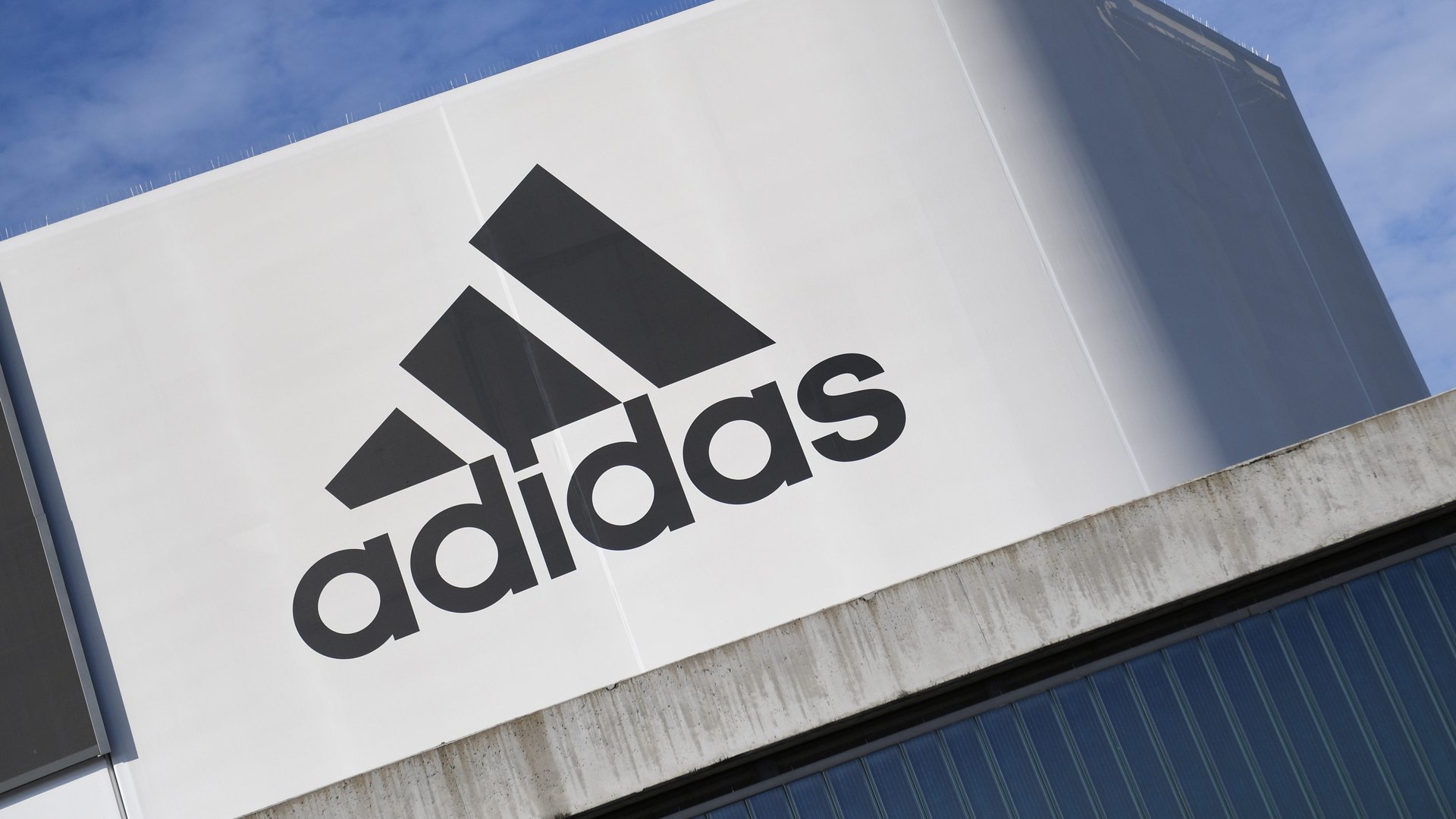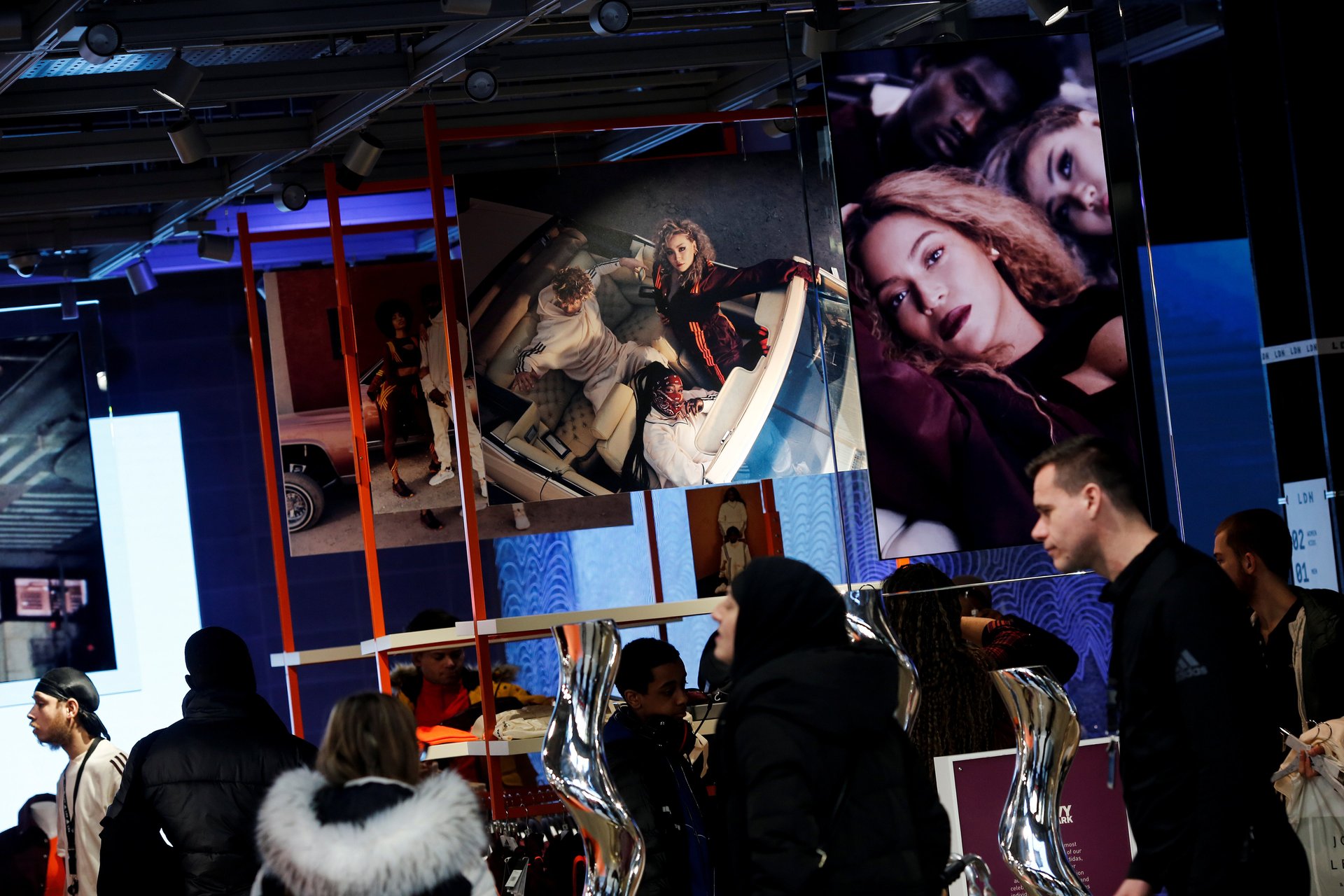A black Adidas designer is calling on the company to apologize for its complacency on racism
After protests broke out around the US condemning the police killings of George Floyd, Breonna Taylor, Tony McDade, Sean Reed, and the long history of violence against black Americans, Adidas—like numerous other companies—took to social media to share a message of solidarity. The sneaker and sportswear company posted an image on Instagram of the word “Racism” crossed out, with text calling for unity in fighting injustice. “Take action,” the caption read. “Things won’t change unless we create that change.”


After protests broke out around the US condemning the police killings of George Floyd, Breonna Taylor, Tony McDade, Sean Reed, and the long history of violence against black Americans, Adidas—like numerous other companies—took to social media to share a message of solidarity. The sneaker and sportswear company posted an image on Instagram of the word “Racism” crossed out, with text calling for unity in fighting injustice. “Take action,” the caption read. “Things won’t change unless we create that change.”
That statement contrasts sharply with the culture inside the company’s North American headquarters in Portland, Oregon, according to Julia Bond, who is black and works as an assistant designer at Adidas. In a June 3 letter she sent to Adidas’s leadership that she shared with Quartz, Bond labeled Adidas’s response “shameful” and called out its “consistent complacency in taking active steps against a racist work environment.” The letter described an atmosphere where black employees are afraid of speaking out and their complaints often disregarded, echoing frustrations that have surfaced repeatedly in recent years among black employees of Adidas in the US.
“Crossing out the word racism does not negate it’s reality, rather, it makes you feel comfortable knowing that it’s ‘gone,'” the letter said. “Unless you are actively working and instilling practices against it, you uphold the very thing you claim to admonish.” It called on Adidas to “issue a public apology for the racism and discrimination that they have openly enabled and perpetuated across the brand.”
Bond, 25, has been a full-time Adidas employee for just over a year after completing internships at the company. In an interview, she explained that others at Adidas have had many quiet conversations about racism, but they have only spoken out anonymously and taken little action for fear of reprisal.
“We can’t be quiet anymore about this stuff,” she said. “It is literally killing black people.”
In her letter, she linked the problems at Adidas to the broader culture of racism that led to the deaths of African Americans such as George Floyd. “The systems in place that are killing black people are the same systems of oppression that are present at Adidas,” she wrote. “Adidas has shown that there is a high tolerance for racism, even though publicly, they admonish it. How many times have I gone into HR about a racist incident—only to be met with responses about the inflictors intent versus their impact—thus negating my experience?”
Adidas has frequently relied on black athletes and celebrities, such as Beyoncé, Kanye West, and NBA player James Harden, to sell shoes and clothes to an audience including many black customers. Though the company is based in Germany, it does a substantial share of its business in the US. Last year, for example, it had roughly €5.3 billion ($6.5 billion) in sales—approximately 22.5% of its business—in North America. Still, black Americans make up a small fraction of its corporate employees in the US and have complained of discrimination.

Bond declined to comment on what response her letter has received from the company’s leadership. She said a protest and strike by an undetermined number of employees will take place tomorrow and will continue until Adidas takes action.
An Adidas spokesperson said an all-employee meeting to discuss the topic and share an action plan is scheduled for next week. “We recognize that we have not done enough, and we are dedicated to doing more,” the company said in a statement. “We are close to finalizing our commitments to ensure our people, most importantly our Black employees, are heard, supported and involved in solutions.” The statement noted that Adidas is working with employee groups to set quantifiable goals, and added, “We will hold ourselves accountable for change.”
The protests against police violence and racism in the US have provoked a slew of public statements from companies and other institutions. But many of these statements have been met with skepticism by black Americans and others, who have pointed out the entities now claiming to support the black community have previously acted in ways that harmed or silenced it.
The NFL has been widely lambasted for offering its sympathies after having effectively blacklisted former quarterback Colin Kaepernick for kneeling in protest of police brutality and racial injustice during pre-game recitals of the US national anthem. The American Civil Liberties Union rebuked Amazon for selling facial-recognition technology it said “supercharges” police abuse. Nextdoor, a social network where neighbors connect and speak, was criticized for its statement when it has previously been accused of enabling racism within communities. Others to be called out have included makeup giant L’Oréal Paris and New York’s Guggenheim Museum.
At Adidas, Bond demanded the company apologize in the same public manner and with the same urgency as its campaigns about inclusion. It’s the only way she will know the company is serious about changing its practices. “If it doesn’t start with this apology, it will all be an empty promise,” she said.
The letter she sent Adidas management began with a quote from writer, academic, and activist Rachel Cargle: “I don’t want your love and light if it doesn’t come with solidarity and action. I have no interest in passive empathy.”
This story has been updated with Adidas’s revised timing for its all-employee meeting and the statement from the company.